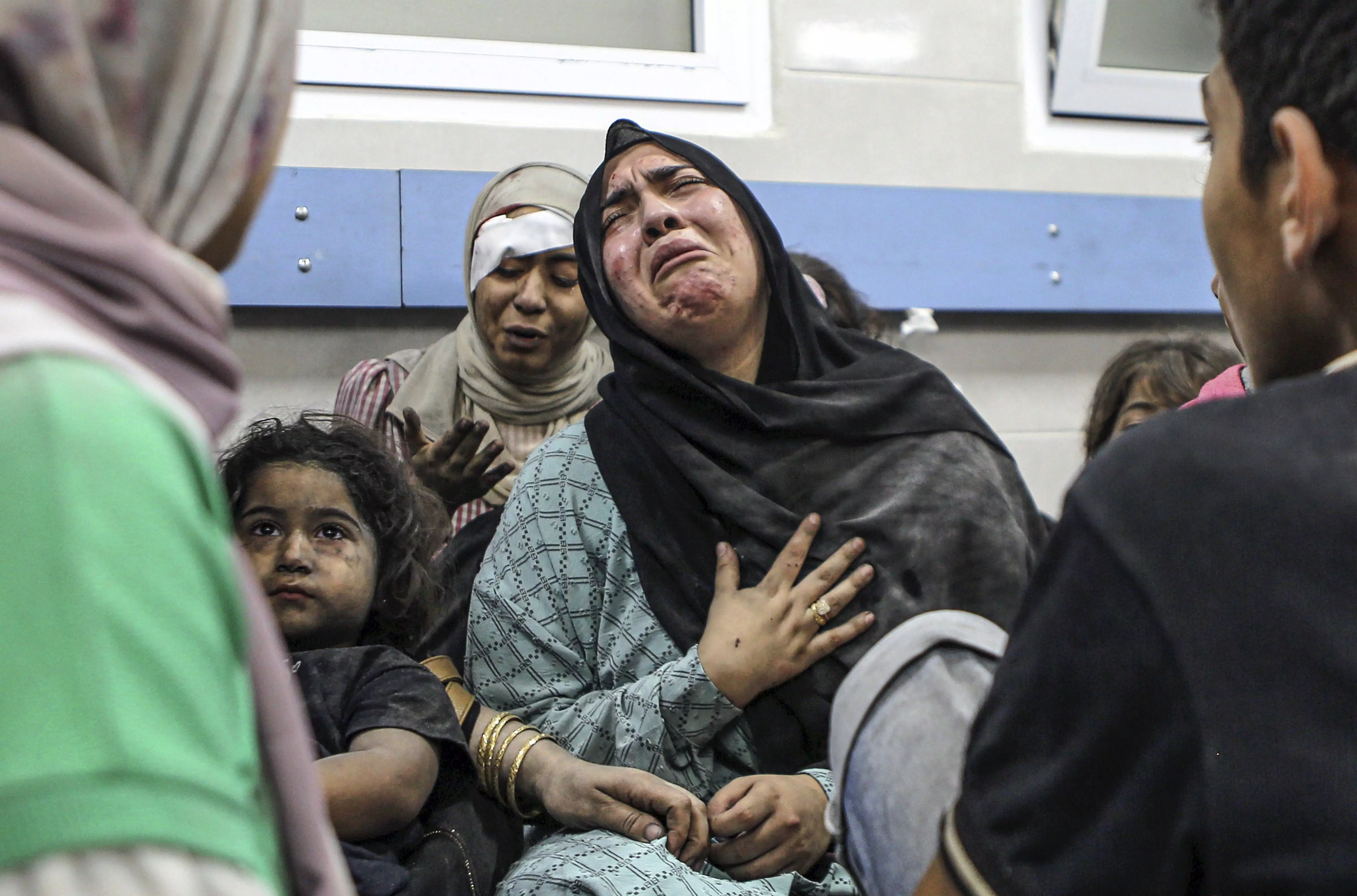
- Home
- India
- World
- Premium
- THE FEDERAL SPECIAL
- Analysis
- States
- Perspective
- Videos
- Sports
- Education
- Entertainment
- Elections
- Features
- Health
- Business
- Series
- In memoriam: Sheikh Mujibur Rahman
- Bishnoi's Men
- NEET TANGLE
- Economy Series
- Earth Day
- Kashmir’s Frozen Turbulence
- India@75
- The legend of Ramjanmabhoomi
- Liberalisation@30
- How to tame a dragon
- Celebrating biodiversity
- Farm Matters
- 50 days of solitude
- Bringing Migrants Home
- Budget 2020
- Jharkhand Votes
- The Federal Investigates
- The Federal Impact
- Vanishing Sand
- Gandhi @ 150
- Andhra Today
- Field report
- Operation Gulmarg
- Pandemic @1 Mn in India
- The Federal Year-End
- The Zero Year
- Science
- Brand studio
- Newsletter
- Elections 2024
- Events
- Home
- IndiaIndia
- World
- Analysis
- StatesStates
- PerspectivePerspective
- VideosVideos
- Sports
- Education
- Entertainment
- ElectionsElections
- Features
- Health
- BusinessBusiness
- Premium
- Loading...
Premium - Events

I only hope that none of my former colleagues was in harm’s way, staying put in wherever they were, far away from the violence that has engulfed their homeland
I once had a Palestinian boss who caused nothing but grief. He was notoriously erratic and imbecile, and I disliked him every waking moment despite loving the well-paying job at the headquarters of a truly global media organization abroad. But my loathing was reserved to just that individual, and not the very many Palestinian colleagues with whom I shared the workspace.
I loved them then. I love them even more now, given what they are being forced to endure — courtesy Hamas, and then Israel.
A life of indignity
The stories that my Palestinian colleagues shared with me broke my heart. Driven from their land and home, most had spent their lives as refugees in foreign lands — be it in the United States or countries closer home such as Jordan or Egypt. Some still had parents and relatives back home, in besieged Gaza or occupied West Bank, but the links to their birthplaces were tenuous.
Visiting Gaza was a nightmare. Israel controlled the entry points to the sliver of land that it had kept surrounded — both land and sea — since 2005, and going through the Rafah border crossing to access Gaza from neighbouring Egypt was always a humiliating exercise. Palestinians were made to wait, and as and when they were finally allowed, security guards made it a point to ensure their homecoming was not a pleasant experience by heartlessly shoving and strip-searching them.
Visiting West Bank was only marginally better. Dangers lurked at almost every street corner as the territory, though technically under the administrative control of an impotent Palestinian Authority, was under Israeli occupation. It meant Israeli security checkpoints at frequent intervals and recurrent harassment for the Palestinians.
A trigger-happy force
Though glamourized in television series such as Fauda, Israeli security services have a formidable reputation for being trigger-happy. They shoot first and think later and are rarely pulled up. Even the high-profile killing of a popular journalist, Shireen Abu Akleh, during an Israeli military raid in Jenin in 2022 has gone unpunished. Report after report of the incident has indicated that Israeli troops targeted her deliberately. Yet, none has been booked and no accountability has been fixed.
The ground realities of their truncated homeland being so harsh, my Palestinian colleagues mostly longed for their homes and families from a distance. They passed on cakes in the office to celebrate the news of a birth of a child to their brothers, sisters, and cousins who they had possibly not seen for years. We condoled deaths in their family as well — of parents and uncles whose desire to have a final meeting with loved ones living perpetually in exile remained unfulfilled.
Pangs of separation and the silent screams of broken hearts largely dominated the stories of my Palestinian colleagues.
Living in constant fear
They multiplied at times of heightened conflicts, as and when the Israelis and Palestinians clashed. Between 2006 and the current bloodshed underway in Gaza, the two have fought no less than four bloody wars in Gaza. Always lopsided given Israel’s far superior military might, they invariably heaped untold sufferings on Gazans. Hundreds died and thousands were rendered homeless as Israel mercilessly bombed one of the most densely populated regions in the world.
Horrified apart, my Palestinian colleagues would necessarily be crestfallen. “Habibi (my friend), my house is gone” — I remember one of my colleagues loudly lamenting one night in the newsroom, sobbing, and shaking on receiving the news of an Israeli airstrike hitting his home. “I still do not know what happened to my mother and my brother’s family living there,” he added.
Fortunately, news came later that they had survived and my colleague was somewhat relieved. But Palestinian colleagues where I worked earlier had generally got used to getting only bad news. Not only about death, but also about the wanton destruction of their properties and dignity. Life under an occupation is brutal and the brutalities took various forms — from Israeli settlers forcibly moving in to occupy Palestinian homes to Israeli soldiers uprooting the famous olive trees.
Cut from the womb
The olive trees that live for hundreds of years are symbols of Palestinian pride. Passed on from generation to generation, they are a major agricultural crop used to produce olive oil — a signature of the region. They are now routinely targeted and cut down as Israel seeks to steal more land by dispossessing the Palestinian owners. One particular Palestinian colleague was disconsolate when several of the trees on his ancestral land were felled near the town of Jericho. “Our ties to what we consider the womb have been irreversibly cut,” he wept.
I presume all my erstwhile colleagues, many of whom I am no more in touch with, must be weeping copiously, witnessing the carnage that is currently sweeping Gaza. Not all of them supported Hamas, the armed group that controlled the strip, despite their deep antipathy for Israel and the untold suffering that its formation in 1948 brought upon them. Like most other Palestinians, my colleagues, too, had little voice in determining what their lives should be like. Hamas took upon itself to determine that by attacking Israel, and Israel responded by unleashing what could be best described as a scorched earth policy.
As the death toll in Gaza mounts, I can only hope that none was in harm’s way, staying put in wherever they were, far away from the violence that has engulfed their homeland. My prayers are also with my former boss. I sincerely wish that he and all in his family are safe. None deserve to die the way Palestinians are dying and that includes even those I did not particularly like.
(Ruben Banerjee worked with Al Jazeera for 12 years in the Middle East)
(The Federal seeks to present views and opinions from all sides of the spectrum. The information, ideas or opinions in the articles are of the author and do not necessarily reflect the views of The Federal)


